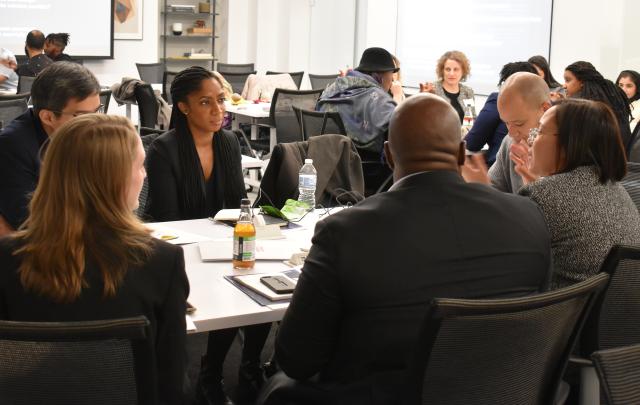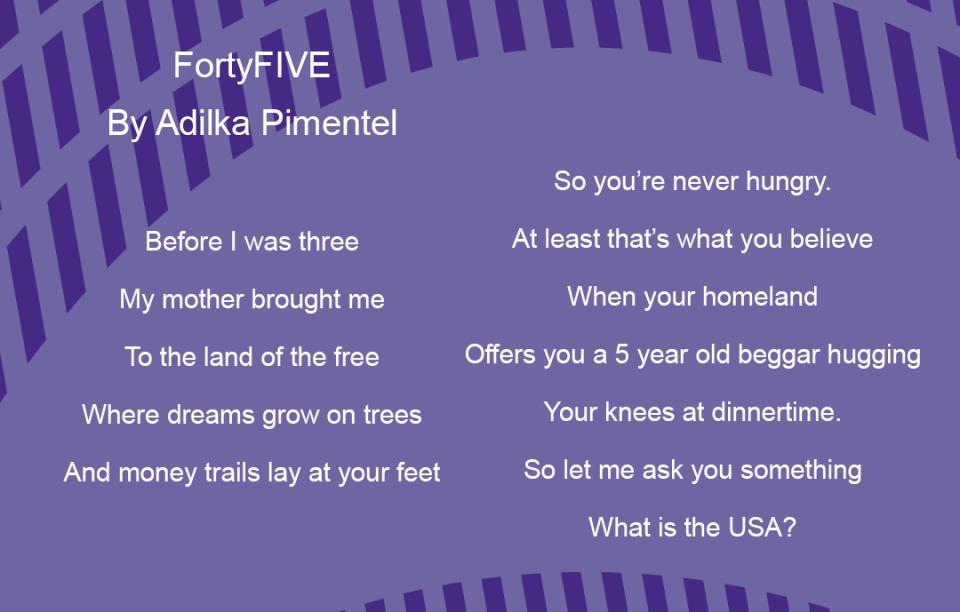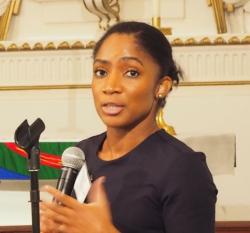Reflecting and Healing
The Grants and Mission Investing team recently welcomed 85 attendees, representing more than 40 Trinity grantee organizations from across New York City, to our annual racial justice convening. This year’s event was different than past years, naturally, due to the pandemic. Nonetheless, our grantee partners enthusiastically shared and received updates, stories, and ideas with each other online.
Trinity seeks to end the cycle of mass incarceration in NYC. Our racial justice initiative advances efforts that promote an affirmative vision for justice that decenters incarceration, disrupts racially unjust pipelines into the criminal legal system, and supports the holistic needs of returning citizens.
In addition to the challenges brought on by the pandemic, the national (re)awakening and social unrest following the murders of George Floyd and Breonna Taylor have called on all of us, including grantee partners, to respond. Trinity supported these efforts by launching a COVID-19 Emergency Response Opportunity Fund and contributed $10 million in program-related investments to the Nonprofit Finance Fund to assist our partners on the frontlines of this crisis.
With this in mind, our 2020 convening focused on reflection and healing, along with three goals:
- Create an opportunity for our grantees to process the events of the year
- Create a forum for Trinity’s team to learn from partners in the field and get feedback on its funding strategy
- Enable everyone to explore new partnerships
Adilka Pimental, a Youth Organizer at Make the Road New York, kicked off our meeting by reciting her poetry. As a Black Latina Queer woman who has been involved in community organizing for the last 17 years, Adilka uses her poetry to address issues of race, gender, and class, and to chronicle her experience as an undocumented immigrant.
Attendees discussed challenges and opportunities for advancing reform efforts and supporting those most impacted by incarceration in these trying times. While the pandemic has created logistical and financial issues, it has also sparked innovative ideas that organizations and advocates are using to drive long-term change.
Grantees agreed that there is an urgent need to increase community-based supports alongside organizing and advocating for policy change, so we can transform systems that will work for everyone, especially our most vulnerable populations. Together, we seek restorative justice through a values-based approach to community-building that centers healing and emotional wellbeing. Despite the challenges of this pandemic year, we remain optimistic and committed to driving change in the criminal legal system together.
Trinity’s Chief Philanthropy Officer Neill Coleman also provided an overview of our 2020 grantmaking and COVID-19 response, our Priest-in-Charge and Vicar, the Rev. Phil Jackson, shared reflections on the year with our grantees, and attendees received copies of Colorizing Restorative Justice: Voicing Our Realities, an anthology of essays that explore issues of racism within the field of restorative justice.
Cheavanese Diedrick is a Program Officer for the racial justice initiative in the Grants and Mission Investing department at Trinity Church Wall Street.


